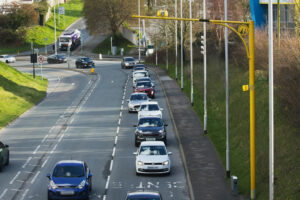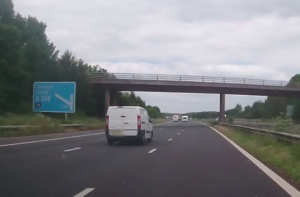Changing and challenging the culture of its workforce remains a top priority now and in the future for the WJ Group, according to Wayne Johnston, its Managing Director.
Mr Johnston was speaking shortly after the 2020 WJ Health & Safety Seminar in Taunton, where he said there was ‘no place for complacency’ anywhere in the business.
“The one thing we need to continue to do is to focus on the cultural behaviours within our business and ensure there are no indifferent attitudes when it comes to health, safety and wellbeing. That applies to everyone from the senior management team through office based staff and workers out on the network. We are a team and each individual is just as important as the next. Simply because you might have been working in the company or the highways industry for a long time, doesn’t mean you can’t make mistakes and when that happens, things can go wrong and safety can be massively compromised,” he said.
“Through our continued investment in innovation, and in-house training events like this one, we are striving to reach the point where we eliminate accidents completely,” he added, saying future priorities include removing more operatives from the risks of live traffic and eventually moving away from using hot materials. “All this development work will continue to benefit the WJ team and our clients,” said Mr Johnston.
Craig Williams, Health & Safety Director at WJ Group, described the company’s aim to widen WJ’s approach to its Safety Observation Scheme (SOS), which encourages staff to report any potentially dangerous situation involving another member of the team, without fear of getting disciplined. “The aim here is to continue to increase the rate of reporting every year to eliminate the risk of incidents and not disciplining people if they make mistakes but improving things through training and awareness.”
To help its operatives drive more effectively and efficiently, WJ has introduced an LGV Driver Performance Monitoring and Reward Programme. This is where speeding, harsh cornering, severe braking, rapid acceleration and stop sign violations are monitored on a system within the cab. From this information, WJ produce a league table for drivers in each depot with the top of the league receiving a cash prize every month and then again at the end of the year.
Also revealed at the seminar was WJ’s plans to continue to innovate in the sector. Before the end of the year, the company could be set to deliver the world’s first accelerated wear testing device for road studs, as well as showcasing the latest development of the Contramark II temporary road stud installation system. Improvements have also been made to its Hydroblast line removal process and modifications to the company’s Captive Shot Retexturing equipment as well.
Martin Webb, Operations Director at WJ said: “It is still very frustrating that there is no live test bed in the UK where we can check performance of our new ideas. Usually we have to go to Belgium for road trials, but this latest investment is a step change for testing road studs as well as other highway maintenance and traffic products. The equipment will be initially for our own use but ultimately made available for anyone in the highways sector to utilise as well.”
























